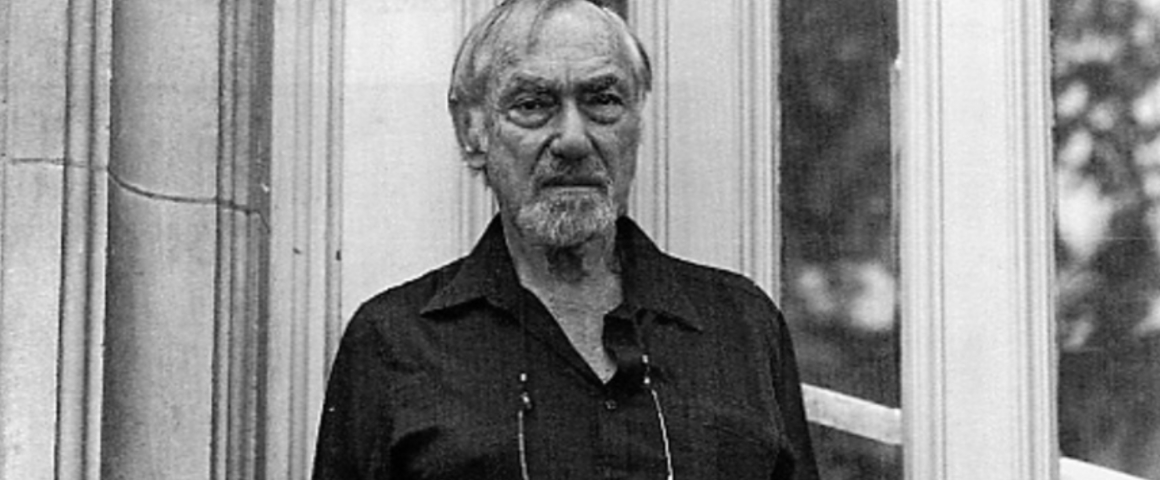By Normand Raymond
Writer, playwright, actor and author of countless screenplays, Ted Allan was born Alan Herman in Montreal on January 26, 1916. The son of Jewish immigrant parents during the Great Depression, he lived in a poor working-class neighbourhood on Saint-Urbain Street.
A neighbour who was communist explained to Allan that capitalism was a flawed system, and that socialism was the only way out. He later said that it was then that he began to feel more communist than Jewish. The 1975 film Lies My Father Told Me, for which he wrote the screenplay and starred as an actor, recounts this stage of Allan’s life in a fictionalized way.
As a young communist, Allan began writing at the age of eighteen as a Montreal correspondent for the Toronto Daily Worker and The Clarion. Around this time, he adopted the pseudonym Ted Allan with the aim of infiltrating a fascist organization for a few months and writing an article about it. In April 1937, he published his first short story, “Cadieux Street Childhood,” in New Frontier, a short-lived Canadian magazine aimed at disseminating left-wing and particularly socialist realist literary writing.
When the Spanish Civil War broke out in 1936, Allan was sent to Spain by the Communist Party of Canada as a special correspondent for the Daily Clarion, the only Canadian newspaper covering the conflict exclusively. Along with other Canadian volunteers, Allan joined the Mackenzie-Papineau Battalion of the International Brigades, military units created by the Communist International and supported by the Soviet Union to aid the Popular Front government in its fight against Franco’s fascist forces.
He also acted as political commissioner in the world’s first mobile blood transfusion unit, designed by his friend and comrade Norman Bethune. From this experience, Allan co-wrote with Sidney Gordon the first biography of Bethune, published in 1952 under the title The Scalpel, the Sword. Allan was also the biographer of the 1964 documentary Bethune and screenwriter of the 1990 film Bethune: The Making of a Hero.
In 1939 he published his first novel, This Time a Better Earth. It is a fictionalized account of his experiences during the eight months he spent in Spain in 1937, one which rigorously follows the conventions of socialist realism designed for a mass audience. The story’s protagonist, Bob Curtis, is a young Canadian volunteer who goes off to fight with the International Brigades but ends up swapping his rifle for a typewriter. It’s a rare example of working-class literature that is overlooked in the history of the Canadian novel. It is also probably the only novel inspired by the Spanish Civil War, as well as the first major Canadian novel about social protest.
Shortly after leaving Spain, Allan returned to Montreal for a few months before settling in New York, where he met and married Kate Schwartz, the widow of a comrade who had fallen in Spain. He then went to Hollywood to work for two years as a screenwriter but found that his communist leanings were not appreciated. He was blocklisted by an FBI immigration officer, who warned him that he had to leave the country.
On returning to Canada, he was hired by CBC in Toronto and wrote several radio plays which he successfully adapted for television. His very first play, The Money Makers, was a comedy-drama about a young but ambitious Canadian screenwriter struggling with his conscience behind the scenes of McCarthyism-era Hollywood. It was a great success and was the first Canadian play to be broadcast on the new CBC television network, on December 4, 1952.
Allan steadily achieved success until he wrote a screenplay attacking mass production for a program that was eventually censored, prevented from being broadcast at the request of its sponsor General Motors. Disgusted by Canadian hypocrisy, Allan left in 1954 and settled in London, England. There, he wrote for the BBC and British television for some thirty years, becoming a successful playwright. He returned to Toronto in the 1980s, where he died at the age of 79 on June 29, 1995.
Ted Allan’s contribution to Canadian and international literature is considerable and deserves to be better known today.
Clarté
Support working-class media!
If you found this article useful, please consider donating to People’s Voice or purchasing a subscription so that you get every issue of Canada’s leading socialist publication delivered to your door or inbox!




